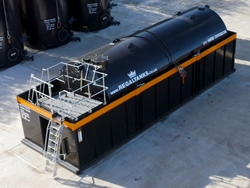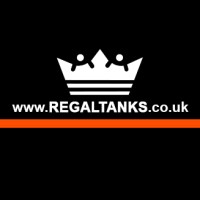 Add My Company
Add My Company

In the world of industry, selecting the right equipment is paramount to success. Among the essential components are industrial tanks, serving a multitude of purposes from storage to processing. However, with a myriad of options available, choosing the perfect tank for your specific needs can be a daunting task. Fear not, as in this article, we will guide you through the process of selecting the ideal tank tailored to your industrial requirements.
Understanding Your Requirements:
Before diving into the selection process, it's crucial to have a clear understanding of your industrial requirements. Consider factors such as the type of material to be stored or processed, the volume needed, environmental conditions, space constraints, and regulatory compliance.
Types of Industrial Tanks:
Industrial tanks come in various types, each designed to cater to specific applications. Common types include:
1. Steel Tanks: Known for their durability and strength, steel tanks are ideal for storing corrosive materials and liquids.
2. Plastic Tanks: Lightweight and resistant to corrosion, plastic tanks are suitable for a wide range of applications, including chemical storage and water treatment.
3. Fiberglass Tanks: Offering excellent corrosion resistance and versatility, fiberglass tanks are commonly used in industries such as oil and gas, wastewater treatment, and agriculture.
Considerations for Selection:
When choosing the right tank for your industrial needs, several factors merit consideration:
1. Material Compatibility: Ensure that the tank material is compatible with the substance it will contain to prevent corrosion or contamination.
2. Capacity: Determine the required volume of the tank based on your storage or processing needs, considering both current and future requirements.
3. Environmental Factors: Evaluate factors such as temperature variations, exposure to UV radiation, and seismic considerations to select a tank that can withstand the prevailing environmental conditions.
4. Installation and Maintenance: Assess the ease of installation and maintenance requirements associated with the chosen tank type, ensuring minimal downtime and cost-effectiveness over its lifespan.
5. Rental Options: Explore the possibility of hiring or renting a tank, which can be a cost-effective solution for short-term projects or when capital investment is not feasible.
6. Regulatory Compliance: Ensure that the selected tank complies with relevant industry standards and regulatory requirements to avoid potential legal issues or safety hazards.
Consultation and Expert Advice:
In complex industrial applications, consulting with experts in tank design and engineering can provide invaluable insights and guidance. Experienced professionals can offer tailored solutions and recommendations based on your specific requirements, ensuring optimal performance and safety.
Conclusion:
Selecting the right tank for your industrial needs is a critical decision that requires careful consideration of various factors. By understanding your requirements, exploring different tank types, considering key factors such as material compatibility, capacity, environmental considerations, rental options, and regulatory compliance, you can make an informed decision that meets your industrial objectives effectively. Remember, when in doubt, seeking expert advice can help ensure the success of your tank installation and operation.
For more information on Regal Tanks Ellough Park Benacre Road Beccles Suffolk NR34 7XD talk to Regal Tanks

